Places of Transition
Jan. 24 — Mar. 21, 2014
MuseumsQuarter, freiraum Q21, Vienna
Co-curator: Gülsen Bal
Artists:
Libia Castro & Ólafur Ólafsson, Köken Ergun, Vikenti Komitski, Aslı Çavuşoğlu, Marco Poloni, Oliver Ressler, Milica Tomić, Santiago Sierra, Akram Zaatari
In search of “possible futures,” the exhibition Places of Transition brought together a variety of art works that engage in an evolving process of producing pluralistic approaches which, in their multiplicity, provoke an encounter on both a visual and discursive level. The changing parameters of transnational questions about common models of interaction necessitate a view on global shifts of power. While the East-West divide in Europe is drawing to a close, the power struggles in the Middle East have pushed back the hopes of the Arab spring and foster the debate on political periods of transition on a global scale.
In this respect, the exhibition looked at the notion of space as a devise for re-linking and reclaiming “commons” as an effort to engage in a critique of dominant narratives and assumptions. These reflect different stages in and of lived experiences by “looking inside him/her-self; he/she looks into the eyes of another or with the eyes of another.”
Each of the invited artists tackled the question of transition with regard to their own country and thus, the exhibition offered multiple voices, which come from different political and religious backgrounds. In this respect, the question of transition questions the attitude with which artists reflect certain traditions in their countries. Being mostly associated with a laical approach towards living, artists nevertheless look at certain traditions in order to formulate a radical break in their work. As a result, critical voices about the past, present and future evolve in order to create new territories of thought.
The display of the exhibition by Nicole Six/Paul Petritsch underlined the curatorial approach that provided the utmost importance to the visibility and the communication of the works, which took a look at the intersection of social, political and economic codes.
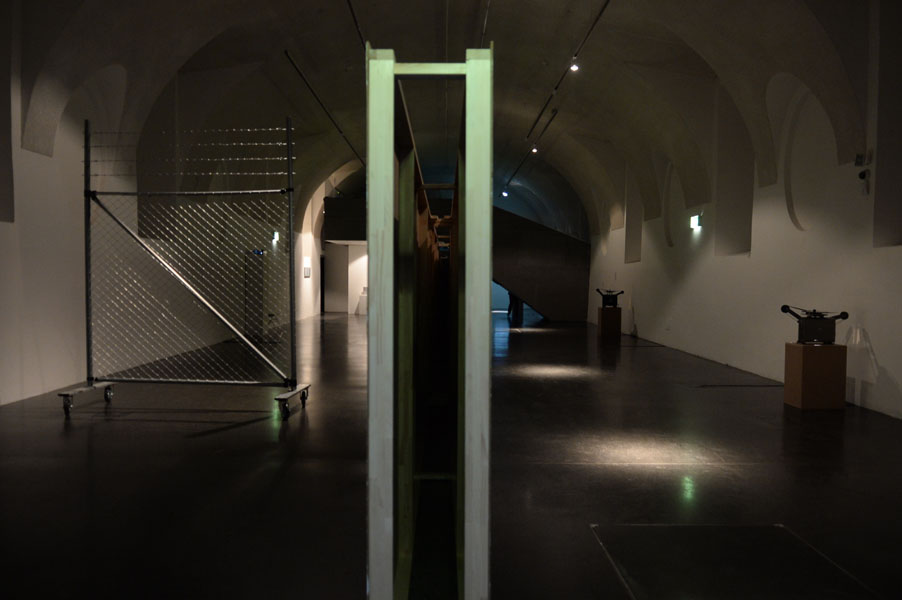
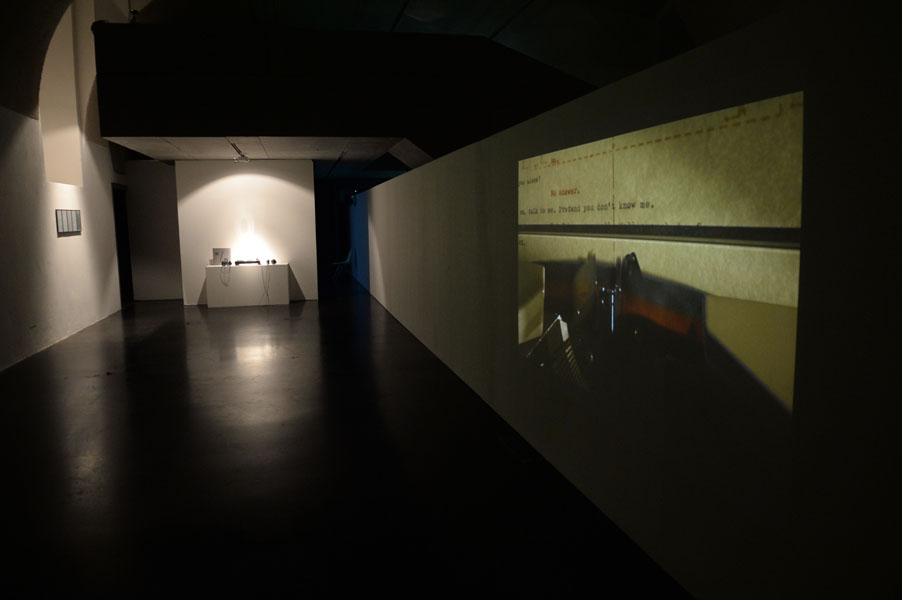
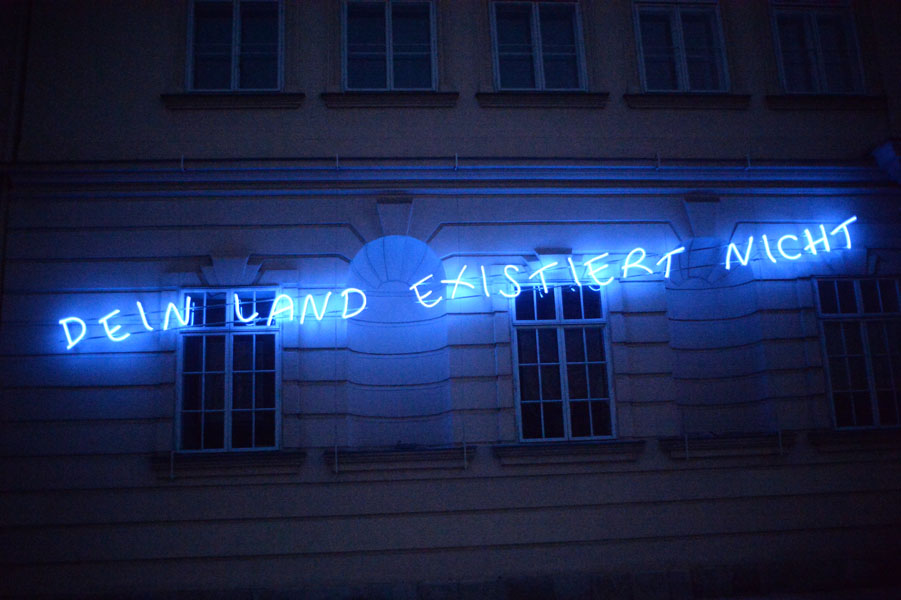
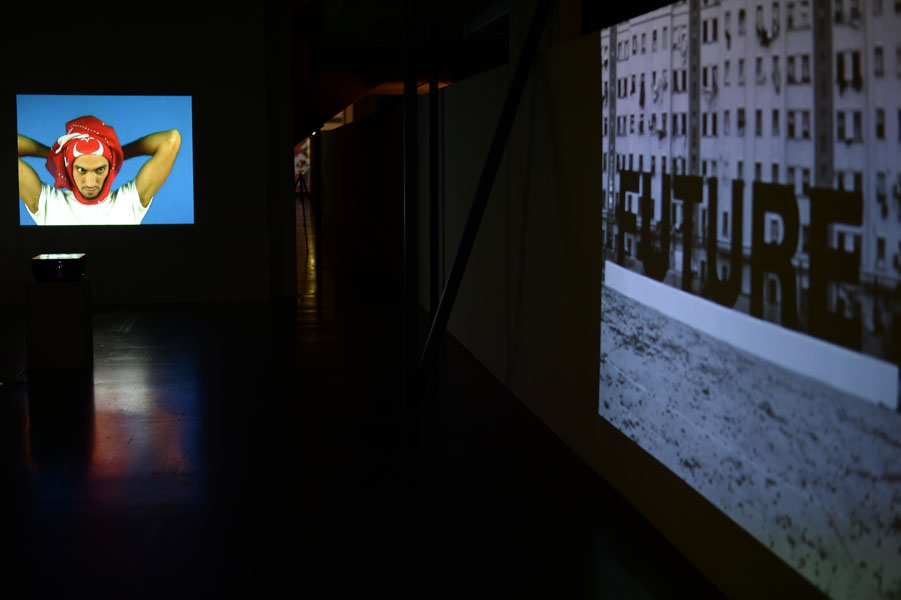
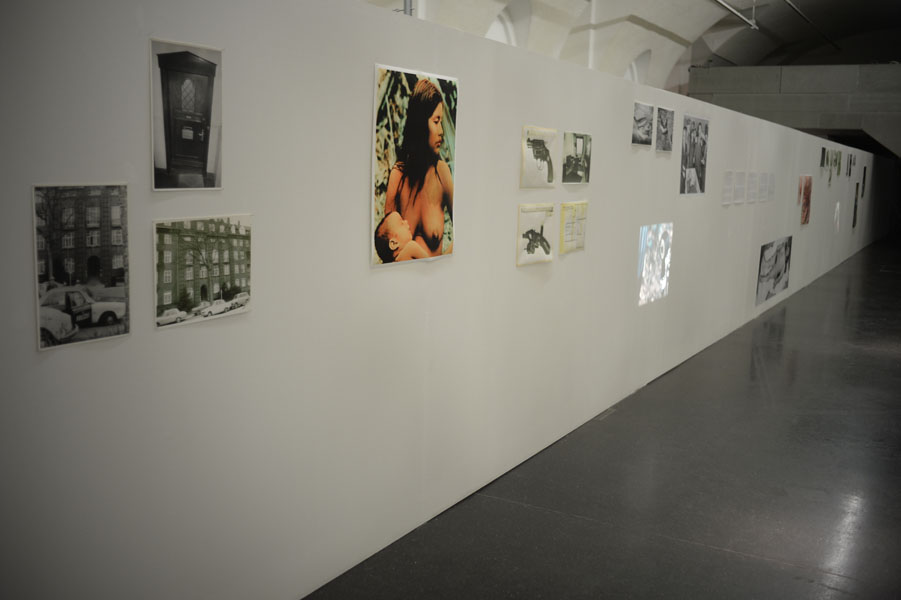
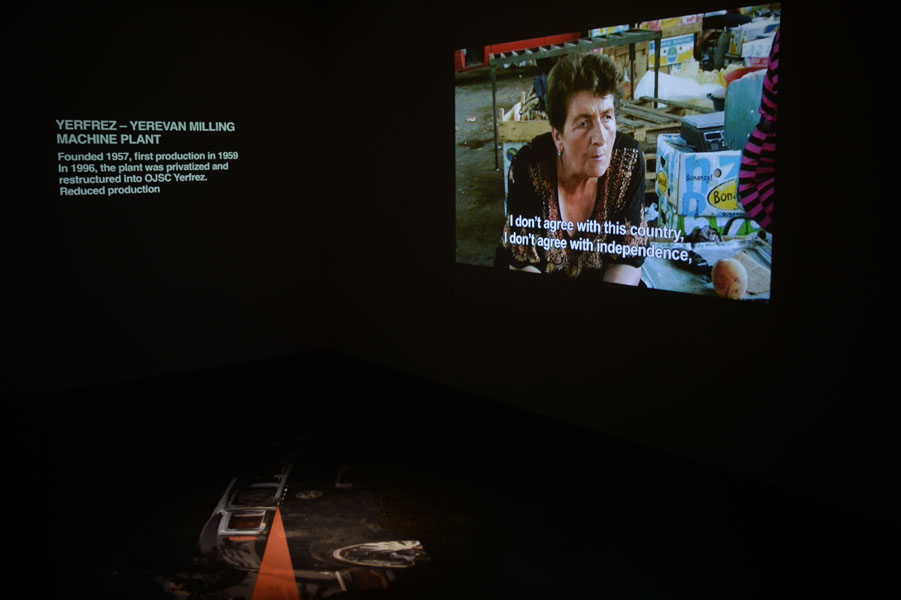

© Walter Seidl
1 Vikenti Komitski, Six Petritsch (exhibition display)
2 Aslı Çavuşoğlu, Akram Zaatari
3 Libia Castro & Ólafur Ólafsson
4 Köken Ergün, Santiago Sierra
5 Marco Poloni
6 Oliver Ressler
7 Milica Tomić